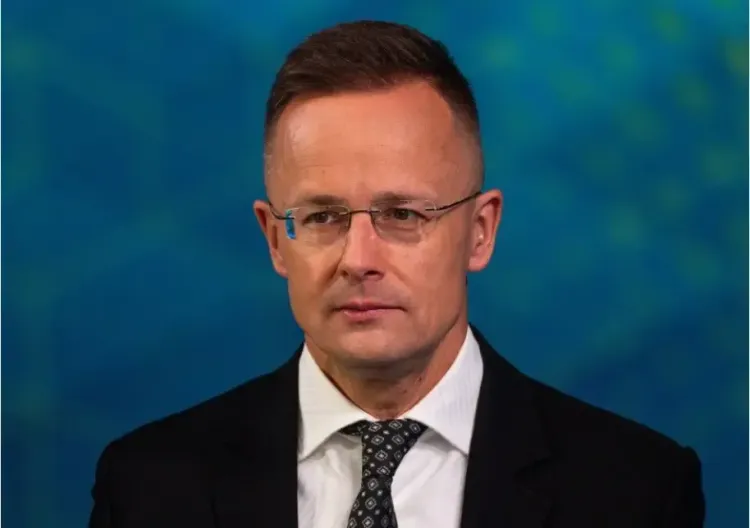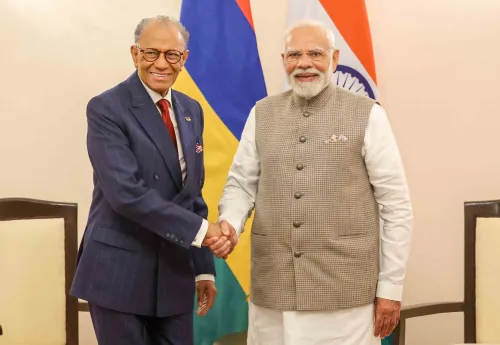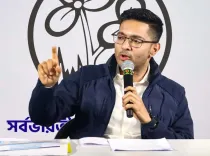Why is Hungary Defending Its Russian Oil Purchases?

Synopsis
Key Takeaways
- Hungary purchases Russian oil openly due to a lack of alternatives.
- Many European nations are accused of hypocrisy for secretly importing the same oil.
- Energy supply security is a major concern for Hungary.
- The EU is pushing for energy diversification through REPowerEU.
- Geopolitical tensions affect energy strategies across Europe.
Budapest, Sep 6 (NationPress) Hungary is openly purchasing Russian oil due to the lack of alternatives, while several other European nations are secretly importing the same crude through intermediaries at lower prices, stated Hungarian Minister of Foreign Affairs and Trade, Peter Szijjarto, here.
"Let us not be deceived by the hypocrites, as many who criticize Hungary and Slovakia for their oil purchases are, in fact, sourcing Russian oil indirectly through certain Asian countries," Szijjarto commented during a press conference following the Hungary-Azerbaijan Joint Economic Committee meeting.
He highlighted that Hungary collaborates with Russia on supply security, explaining that the European Union declined to assist Hungary in enhancing gas pipeline capacity in Southeast Europe, while Croatia opted to increase transit fees instead of expanding their alternative pipeline capacity.
In response to a question regarding US President Donald Trump’s recent statements urging European nations to cease importing Russian oil, Xinhua news agency reported Szijjarto’s remarks.
He pointed out that those criticizing Hungary and Slovakia for their ongoing purchases are also engaged in similar transactions through indirect methods.
"They do this to acquire cheaper oil. They secretly procure Russian oil as it is more affordable. We, on the other hand, purchase Russian oil transparently because we lack other options," he elaborated.
Szijjarto emphasized that Hungary’s energy supply is contingent on physical infrastructure, as oil and gas can only be delivered through existing pipelines.
He reiterated that the European Union had rejected Hungary's proposal to expand Southeast European pipeline capacities, while Croatia raised transit fees instead of increasing capacity on an alternative route.
Earlier, Szijjarto declared that Budapest would not support the initiation of the first cluster of accession negotiations regarding Ukraine’s European Union membership.
On September 4, it was reported that Trump, during a virtual meeting with Ukrainian and EU leaders, stated that Europe is financing the war through purchases of Russian fuel.
The US has called on the EU to escalate economic pressure on Russia, noting that over the past year, Russia has received approximately 1.1 billion euros from the EU for fuel sales.
The European Commission, part of its REPowerEU initiative, aims for complete diversification of supplies and reduction of reliance on Russian gas and oil by 2027. This plan includes joint procurement mechanisms, negotiations with suppliers, and transitioning to renewable energy by 2030, with an expected increase in renewable sources in future energy balances.
Both Slovakia and Hungary have expressed their opposition to the REPowerEU concept.
In fact, in July 2025, Slovakia thwarted the adoption of the EU’s 18th sanctions package against Russia through REPowerEU, arguing that it jeopardized the country's economy and energy security.










